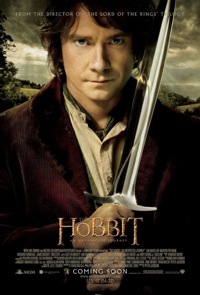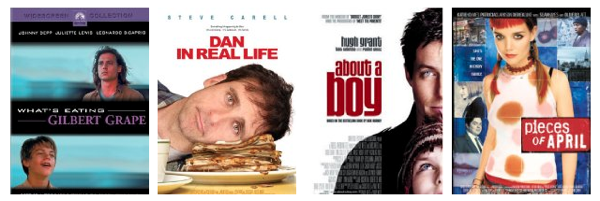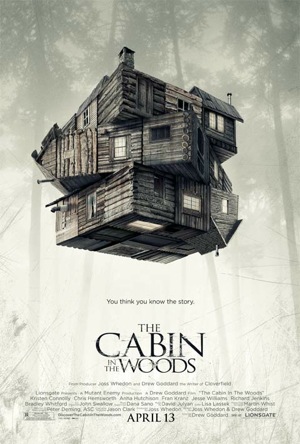There is a title that’s bound to attract some search engines. But that’s not why I chose it.
I have friends who are big fans of the movies of Wes Anderson. Like the Coen brothers, I find that he is an acquired taste, one which I, after seeing Rushmore, The Fantastic Mr. Fox, and Moonrise Kingdom am still working to acquire. Out of respect for my friends, and Anderson’s three Oscar nominations, and the fact that Moonrise Kingdom was nominated for the top prize at Cannes, I’m willing at most points to say that my lack of appreciation is a problem with me. I often simply don’t get Wes Anderson, but I’m willing to admit that that is my problem.
So I may not be the right person to address the question that Moonrise Kingdom raised for me. There is a scene in the film which probably made me, and many others, squirm. It made me ask, “When does a filmmaker’s reputation allow him to get a pass where he should not get a pass?”
The scene in question captures two child actors in a highly sexualized context. The scene itself is not distasteful. What is distasteful to me is the fact that two children were asked to enact it.
Curious what my friends thought, I asked their opinion of the movie. This led to a specific debate with them concerning the scene in question which I preserve below. I think that even for those of you who have NOT seen the film there may be some value in raising and considering the questions the scene raises.
Correspondent #1: I saw Moonrise Kingdom at the local ‘indie’ theater when it opened last May. As always with Wes Anderson, I love taking in the aesthetics – the sets, the costumes, the attention to detail, the soundtracks, the original scores, the cinematography. All those things alone do not a good movie make! I don’t remember being particularly impressed with the story or the characters. I remember a time or two feeling uncomfortable at the pre-teen romance. In general I found it entertaining enough, but it didn’t really ‘stick’ with me, I haven’t looked back at it since.
RRG: All you say about MK is on the money: quirky, visually intriguing, etc.
But here is what bothered me, not only for its troubling nature, but also that so many others, and particularly Christians, were not bothered by it. I can’t say what the definition of child pornography is, but would not filming children involved in sexual activity for the entertainment of others qualify? If that is accepted, then the question becomes ‘what is sexual activity’. When a 12 year old male actor is invited to and does place his hand on a female actor’s breast in the company of sexually oriented conversation, is that not close to, if not actual, child pornography (albeit of a mild sort)? These are not 20 year old actors playing 12 year olds; these are actual 12 year olds. Does it get a pass because it is Wes Anderson? Or am I revealing a level of latent prudishness?
Correspondent #2: Agreed about Moonrise for the most part. Only saw it once and thought that it was a little disturbing. Probably Wes Anderson’s weakest to date. He’s always fascinated by young lust, and those early awkward moments may have gotten the best of him in this film. Cinematography, acting, etc. was great as always, but the story didn’t do much for me. The letter writing back and forth and man/nature aspect could have been interesting if developed more…but as a whole…..eh.
RRG: See – this is my struggle! We ask a 12 year old to fondle another, and the worst we can say is that this ‘must have gotten the best of him’! We can’t bring ourselves to say that that was wrong? Maybe it’s just me enjoying a bit of my own self-righteousness here.
Correspondent #2: Ok…I would imagine you’ve enjoyed some movies with “worse” subject matter, no? And if not, if indeed this is the most offensive I would be curious as to why. They are peers in the movie, and they are both curious, so if in the abuse/fondling aspect I would definitely put it on the lighter end of that spectrum. Again, not condoning, just sayin’. And for what it’s worth, that scene did not bother my wife much who is VERY sensitive to sexual stuff on screen. There are many different trajectories he could have gone with it, but he leaves it there. No further. Still, curious as to why that got to you so much. I’ll continue thinking about this…..and if you’re self righteous, well I’m that plus desensitized. So you might need another opinion altogether.
RRG: There is difference between what I watch and what is appropriate behavior for actors. We would agree that for one actor to actually KILL another actor for entertainment purposes would be wrong. Right? So, we simulate that. I can watch a naked man and woman, within reason, on screen, but at least assume that these are adults who have been naked before and they somehow have figured out how to make this merely a professional engagement. Would I want my wife stripping naked for a camera? No… but I get that it is done and that those who do it are in some measure able to treat it as a job. However, we draw the line at actual intercourse, don’t we? That is reserved for the pornographic, xxx videos. Right? We still preserve a line there which legitimate cinema does not need to cross. Like killing, it is simulated. It does not need to be shown.
But in this movie, it is not the watching of the act that bothers me. It is that for the sake of entertainment, an actual 12 year old is asked to do what he would not ordinarily do (we hope): put his hand on the budding breast of another child actor. Is it okay for us to ask a child to violate another child like that? In actuality an act occurred – not simulated, but really. Anderson may have a fascination with young lust, but at this point his fascination verges into voyeurism which I think wrongly violates two children.
So does that help explain my issue?
Correspondent #2: Yea, it does. I heard a similar argument from a friend regarding people (women primarily) being nude on screen or on a stage, etc. His argument was it should never be done because the actor or actress has crossed the line of “acting” immodestly (if portraying sex or someone scantily clad or something) to being immodest. I get that. For Moonrise, from what I would say is a safe assumption, in the world of prepubescent youths, simply doing what they did is pretty tame and not all that uncommon – at least from what all is out there in the world.
Would you have been okay with the scene if they were shot from the neck up, the words were the same – whatever they were…”I’m going to touch your breasts now” or something like that explaining what he was doing, but it did not show said act OR the act was not actually done, just acted out in that sense? Just curious.
RRG: I understand the nudity issue, but have managed to somehow put that aside. I’ve lost too many arguments with artists who paint from live models. It’s too hard to make an ‘always wrong’ or ‘always right’ case in that regard. But I want to say that it IS always wrong to ask children to act in this way for the sake of entertainment. And perhaps it is mild, but I still think it is wrong to ask them to do it on screen for our entertainment. (And, as a side note, an article written about the film did note that their kiss was their absolute first, which, I suspect, suggests that they have not been out there feeling breasts either.)
And yes, if the words were the same, but they as children were not asked to do the act, I would not be as troubled. I’m troubled with 12 year olds losing their sexual purity, but I know that it happens. But I would not want to be one to encourage that.
Well, there it is. Comment away.

 We were glad when
We were glad when  I’m a huge
I’m a huge 
 This movie concerns five college students who head to an isolated cabin for a weekend getaway. They have no idea how isolated it really is. As evening sets on their perfect getaway, strange events begin to suggest that all is not as was advertised. One learns that they, too, have entered unawares into an arena of sorts where remote ‘puppeteers’ are manipulating their environment in a way designed to lead to the deaths of four of the five, each in a particular order.
This movie concerns five college students who head to an isolated cabin for a weekend getaway. They have no idea how isolated it really is. As evening sets on their perfect getaway, strange events begin to suggest that all is not as was advertised. One learns that they, too, have entered unawares into an arena of sorts where remote ‘puppeteers’ are manipulating their environment in a way designed to lead to the deaths of four of the five, each in a particular order.